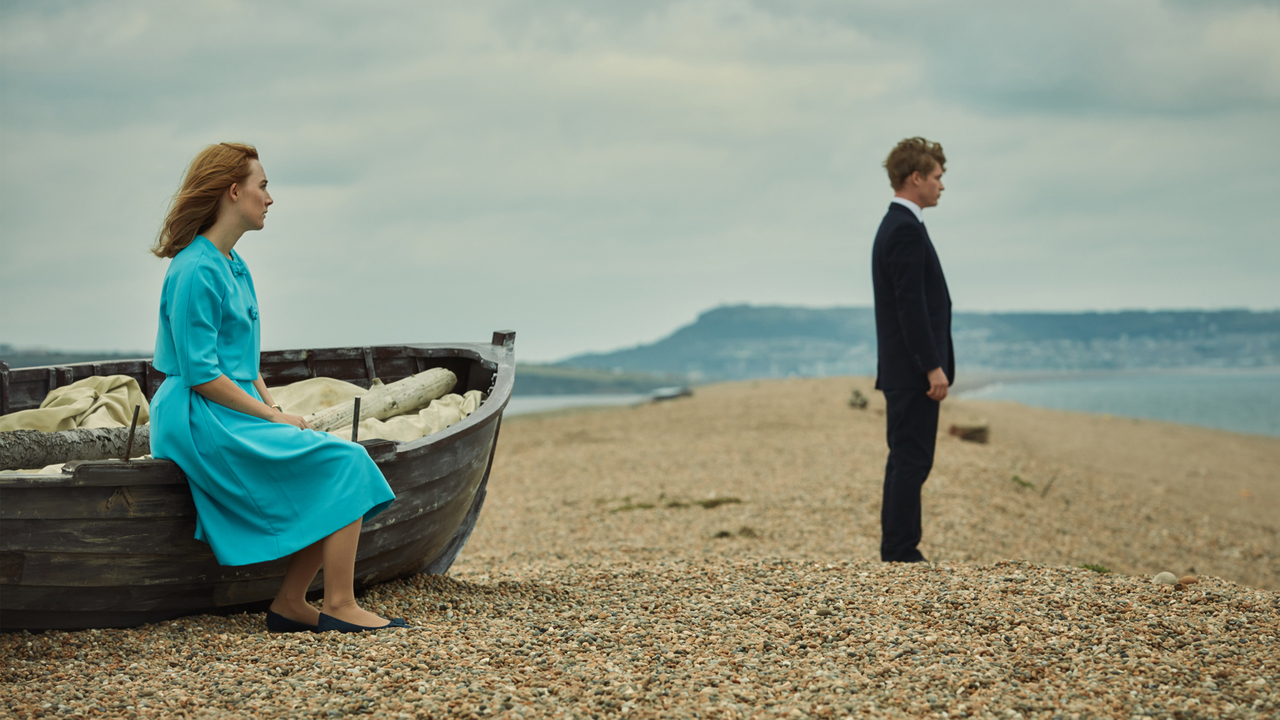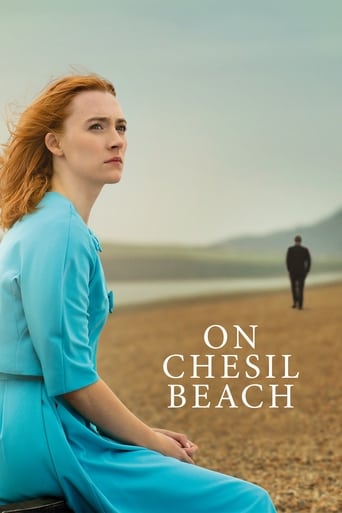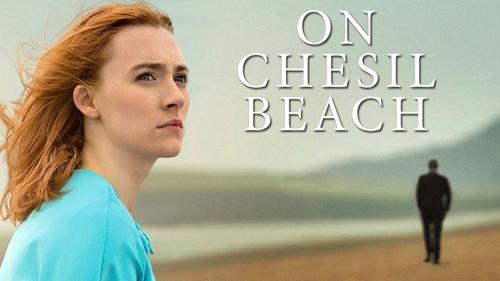



Purely Joyful Movie!
Please don't spend money on this.
It is interesting even when nothing much happens, which is for most of its 3-hour running time. Read full review
View MoreA movie that not only functions as a solid scarefest but a razor-sharp satire.
View MoreI did not see the trailer before seeing this film which is unusual, so I had no expectations of the storyline at all. I was surprised and interested in the context of the story of these two lovers in the early 1960s. Their difficulties with their families - his mother and her father - added substance to their story. Great cast and well acted.
View MoreAdapted by Ian McEwan from his bestselling novel, the drama centers on a young couple of drastically different backgrounds in the summer of 1962. Following the pair through their idyllic courtship, the film explores sex and the societal pressure that can accompany physical intimacy, leading to an awkward and fateful wedding night. Despite a very good perfomance by Ronan and some nice direction and cinematography 'On Chesil Beach' was very slow, confusing and went from one place to another that in the end only hurt the film. (3.0/10)
View MoreQuiet little film, beautifully if slowly done. Then WTF? Have no idea why what happened happened, or if in fact it actually did happen. Very confused and disappointed.
View MoreIan McEwan's screenplay for his own novel provides some fascinating examples of creative adaptation. For example, the novel ends with Edward remembering Florence walking away from him till she is out of his sight. In the corresponding scene in the film the newlyweds stand at opposite ends of the screen with a cluttered rowboat between them. They speak across the abyss. As the raging Edward lets Florence walk away, the camera withdraws until Edward is left alone on his side of the screen. But the boat also sinks out of sight, below the horizon. That is, his ship has sailed. The film adds a verbal/literary metaphor. More dramatically, McEwan alters the ending by fleshing out Florence's future and giving the couple a reunion that provides an emotional release - for the characters as well as the audience. Edward's closing remarks expand into an emotional scene that the screenplay adds to the novel. After a 50-year separation the erstwhile lovers independently fulfil their romantic pledges in the concert hall they ambitiously predicted. She plays the Mozart he could "sing;" he sits in C3. But more important than this literal realization, they finally find themselves in the same emotion, their love now tempered by regret. He weeps helplessly at the quintet's standing ovation. Tears stream down Florence's face, dramatizing the novel's remark that at every performance she ruefully remembered him. The novel closes on Edward's private remorse, his recognition that he ruined his life by his inaction when Florence walked away. They did love each other and perhaps could have resolved her sexual repression over time and with understanding. But Edward was always too quick to anger - as in his avenging the insult to his Jewish friend. Indeed the violent rage that worried Florence may have been a subconscious element in her attraction: it made him something like her short-fused father. A boat scene keeps the subtle possibility of his sexual abuse of her as a child, the tennis scene the father's rage over her perceived breach of his privacy. Edward chillingly raises a rock when he attacks Florence for not keeping her sexual oath. He throws it into the sea, but not until he has admitted the possibility of his violence against her. The careful graduation of the pebble sizes along the beach - possibly the novel's central metaphor - parallels the film's constant nuancing of emotions and their tacit expression. Sailors determine their location from the size of the stones. We navigate our lives according to the proportion we allow our emotions. The film's ending steps outside Edward's perspective to round out Florence's future. She married her quintet's cellist, who had long desired her and himself accused her of hiding her forcefulness under an apparent shyness. He overcame her rejection, married her and developed the sexual relationship signified by their consequent children. This Edward first learns when her daughter Chloe buys a Chuck Berry record for Florence's birthday. Her name and "bouncy and merry" description prove her lineage. Edward doesn't follow Chloe very far, opting again to withdraw from Florence. But he goes to see her perform at her quintet's final performance. While Edward retreated to his own musical taste, Florence retained her attachment to the music he introduced her to, even as she advanced her classical career. Their career successes similarly contrast. While her college musical group succeeded for 50 years (including the young violinist Florence imposed), Edward abandoned his passion for History and ended up managing a range of vinyl record shops (a pop culture version of history/anthropology). He remarried but had no children and remained broken by his rejection of Florence. They both may have started with Firsts at school, but in overcoming their respective emotional blocks Florence exceeded Edward. Usually an ending imposed in a screen adaptation simplifies or debases the original. The common motive is to provide the happier ending that the mass cinema audience is assumed to demand, more than the solitary reader. McEwan's addition here serves that purpose in heightening the emotional impact. But it remains wholly congruent with the intentions and effects of his own source. It deepens rather than softening the oiginal.
View More